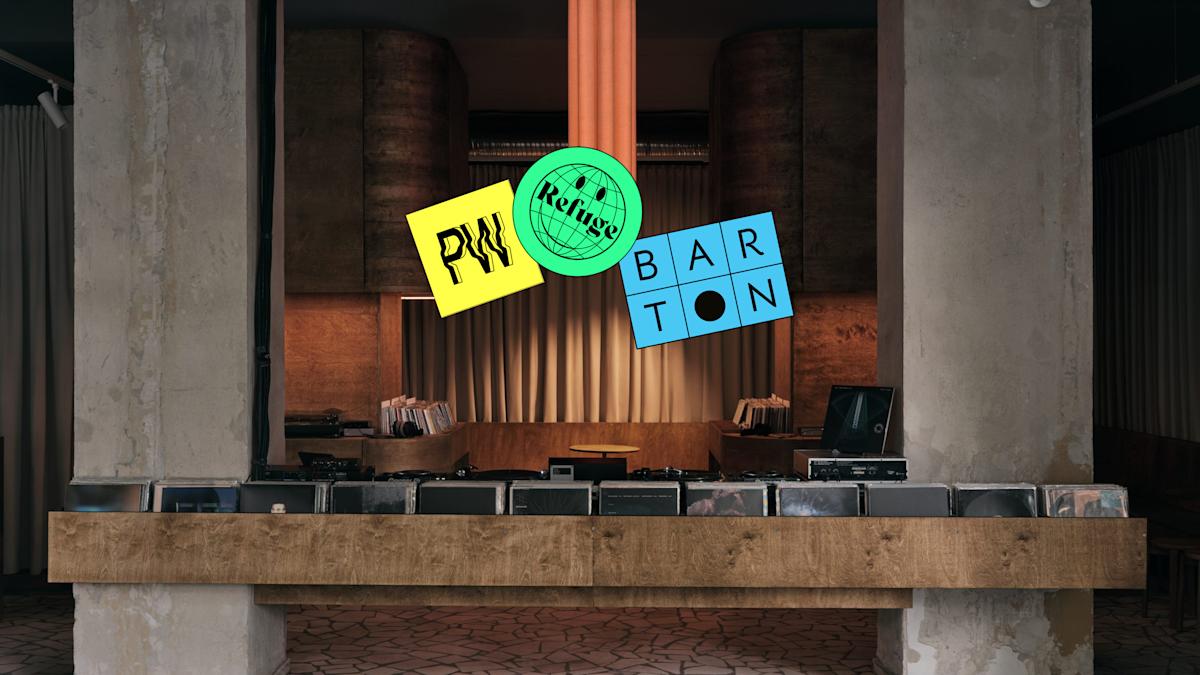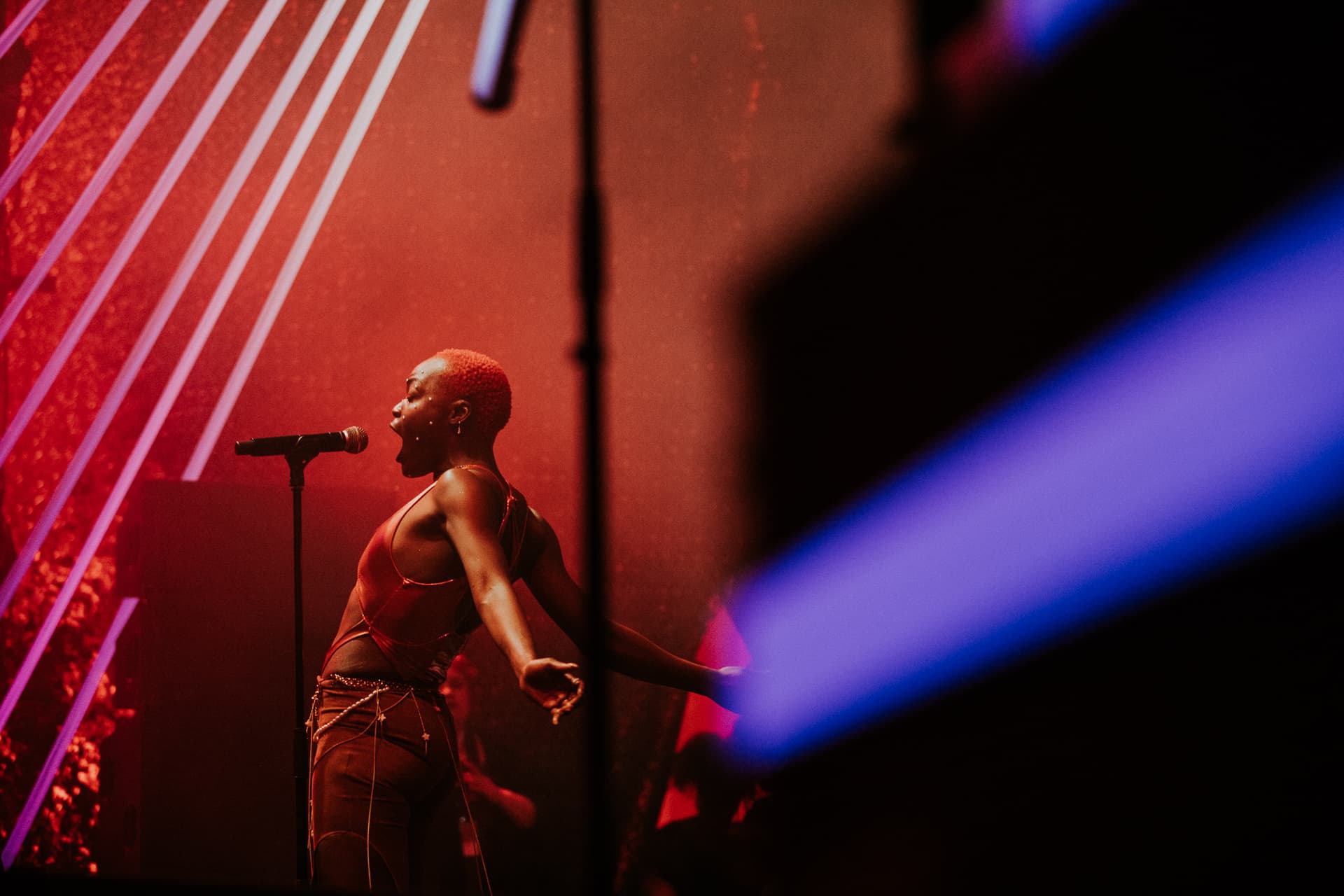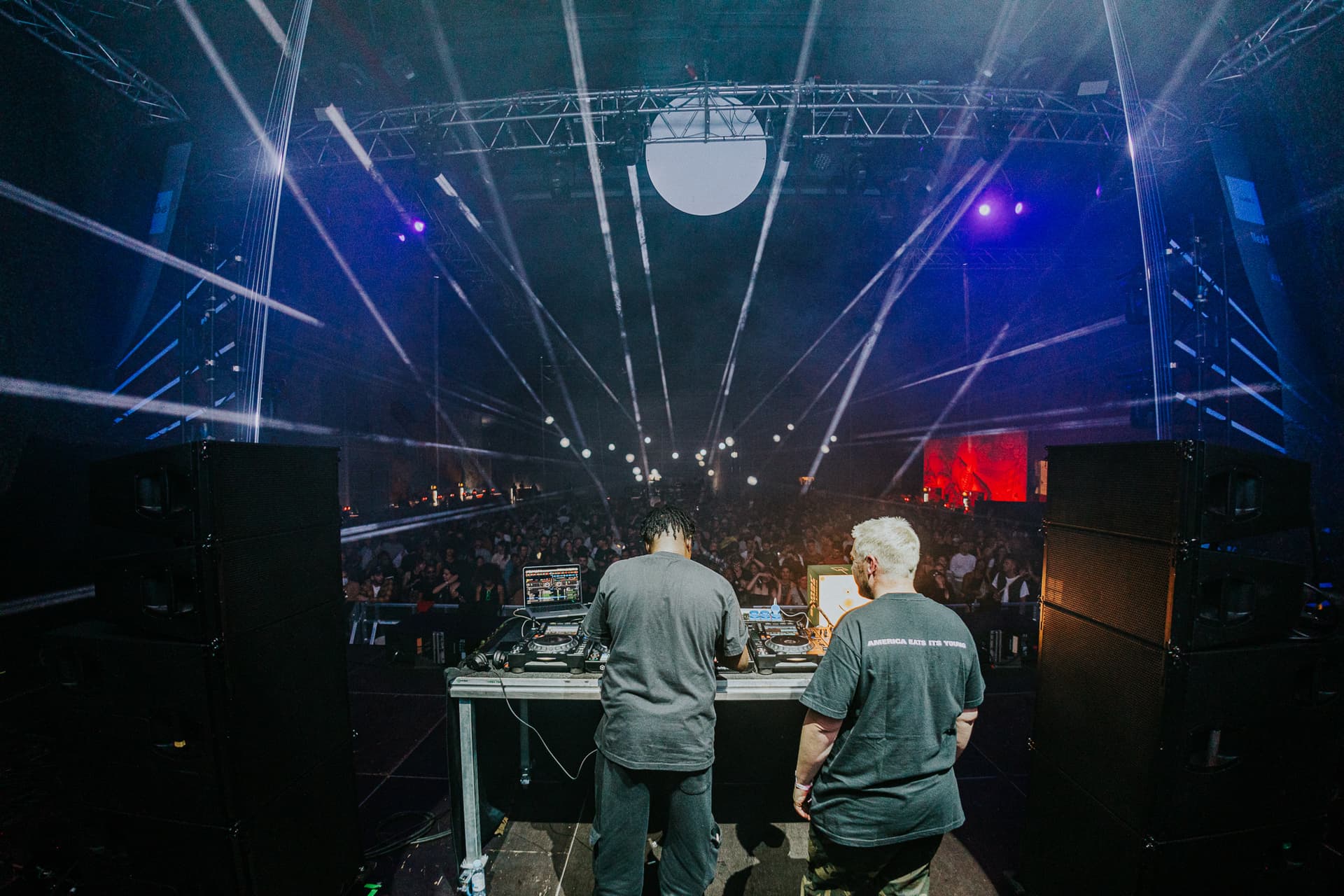
Destination Bucharest for sessions at Bar Ton and Platforma Wolff
Refuge Worldwide residents head to Romania.
Loading

We met up with Enchufada-boss Branko to talk about Lisbon, curating a stage at Sónar Lisboa 2022 and his new album OBG.
By Max Graef Lakin
Branko is an outspoken advocate for the Lisbon scene.
As a founding member of kuduro collective Buraka Som Sistema and label-head of Enchufada, he's dedicated his career to elevating the uniquely Portuguese strains of club music–evolutions of kuduro, kizomba, zouk and more–that he first encountered growing up in Amadora on the outskirts of the city.
A few weeks ago Branko played at and curated a Saturday night Enchufada showcase at the first edition of Sónar Lisboa. We caught up with him the day before the show, which was also the day his third solo album OBG was released, to talk about Lisbon, his new LP and some of his favourite upcoming artists.
Hey Branko, congratulations on the new album. How does OBG relate to what you’ve been doing throughout your career, and what’s new about this record?
I’ve always focused on the idea of Lisbon as a cultural melting pot and a creative magnet for Portuguese speaking cultures. In terms of influences, genres, rhythms etc., OBG continues that path. The biggest difference is that for most of my previous records I was travelling a lot and the creative process was a lot more social. This time I wasn’t getting that same creative fuel, so I had to shift focus.
In 2020 I went back to a lot of the places I visited in Portugal with my parents or friends when I was younger. I started a series of outdoor DJ sets, at first just using a small controller with my daughter filming. The project kept building–we started working with a film crew in locations across the country, and I started making original music for the sets. I was really happy with the feedback and at some point, I realised I was already making an album. It was just a question of finding the final pieces.
All the track titles on OBG are SMS-text abbreviations, what was the idea there?
People can be very precious with language. I’ve always been a fan of making communication simpler and faster. In Portuguese, every sentence has so many verbs and conjugations. Because most of the tracks on OBG are instrumental, it didn’t really make sense for me to give them long names.
Two of the abbreviations are in English: ETA (estimated time of arrival) and OOO (out of office). ABR is abraço (hug), OBG is obrigado (thank you). The most complicated ones I kind of made up, but I hope people will start using them! ADRT is adoro-te, somewhere between ‘I like you’ and ‘I love you’. It's not as strong as amo-te, which you’d only say to someone you’re in a relationship with. You would say adoro-te to a friend.
You grew up on the outskirts of Lisbon in Amadora. What was your experience there and how did it influence your music?
Amadora is a city full of people who work in Lisbon. It's residential, housing is cheap, and it's full of concrete. It was a nice place to grow up because there were so many kids in the same place, playing football, going to school, and eventually listening to and playing music. We’d do everything together. I remember a concert in Lisbon that we all went to. There must have been forty kids on one train, and we waited at the station for every single person to arrive. We were always several hours late.
It felt like everybody in the neighbourhood was from a different place–Brazil, Cape Verde, Angola, rural Portugal. That was cool because when we started listening to music, you could go to one friend’s flat and hear their parents’ Brazillian records, another flat and hear Cape Verdean music–the same was true of the food. At my school people made CDs with cracked music software that would circulate through the entire school–everyone got to take it home for 48 hours and then you passed it on to the next person. That’s how I got into production.
Growing up there was fun, diverse and very organic. It definitely shaped the way I understand the world.
In terms of diversity and community?
Yes, but also in terms of how I see the city of Lisbon itself. As I grew up I was surprised by the difference between how the city was perceived and how it actually is.
What was your early experience of Angolan kuduro music and how did the idea for Buraka Som Sistema come together?
When I was a teenager there were certain clubs that played mostly kizomba, and some kuduro when the night peaked. I could never get into any of them because you had to have nice shoes and be well dressed.
My friends and I would just hang around in the streets. People would be driving around, listening to kuduro and other music in their cars. Later on, I met Kalaf, an Angolan MC, and together we decided to research the music we were hearing, to try and understand what was going on. We realised kuduro was the same tempo as dubstep and other kinds of club music, and that we could play around with the rhythms to make something interesting.
Eventually, we came up with the idea for Buraka Som Sistema, which started as a club night. The collective was made up of Conductor, who grew up in Angola; Rui (DJ Riot), who I went to school with and whose parents were from Mozambique; Kalaf and myself. We all had very different cultural backgrounds–the idea was to make all that work together. When we began producing our own music, we started the label Enchufada so that we could release it ourselves.
Were Buraka and Echufada attempting to change that false perception of Lisbon that you described, or shine a light on a side of the city that is ignored by the mainstream?
Yes, in a way. It’s interesting though because as much as the culture we were celebrating was ignored intellectually, you hear Angolan and Cape Verdean music on mainstream radio all the time, particularly kizomba. The music is there and people are dancing to it, but hardly anyone is talking about where it actually comes from.
People hold very strange, negative feelings towards these communities, but then they’ll get in their cars and sing along to music from that same community. There’s a lack of intellectualisation of the subject, and a failure to understand how deeply-rooted all these communities in Lisbon are.
So the consumption of the culture hasn’t translated into any real understanding or respect for those Afro-Portuguese communities and artists?
Exactly, and with Buraka Som Sistema and Enchufada, we always wanted to make these connections as obvious as possible.
How important is it to make sure those communities and artists get the credit they deserve?
That’s been a key objective throughout my career, to be honest. I know that the music I'm playing is part of my musical vocabulary because I grew up in a city with friends who introduced me to it, but it wasn't music that comes from my actual background. My perspective has always been to try and approach the culture in a way that's respectful and to work with other artists to create something new together.
It’s very important to involve people in your creative process. With Buraka, it was always so complicated to license everything, write contracts or even just say the names of the songs, because we tried to give credit to everyone involved. Take the song 'Sound of Kuduro' that featured M.I.A. We could have just left it at that but we thought, ‘if M.I.A. is singing “sound of Kuduro knocking at your door” on the hook, then we need to get some of the best kuduro MCs to do verses.’ We added Saborosa, Puto Prata and DJ Znobia. It added layers of difficulty, but that was the way we wanted to tell the story.
There’s a difference between just repackaging something that isn’t yours and positively contributing to culture. It’s also about making sure that everyone is with you on the lineups you’re on, and that the right artists are being promoted through your label. There’s no fixed path to take, but you need to be honest about what you’re doing.
Labels like Enchufada and Príncipe have helped to establish an idea of a 'Lisbon sound' for an international audience, but what does the scene look like on the ground? What spaces is that music played in?
It’s cool because right now in Lisbon if you go out on a Friday or Saturday you're always going to find that Lisbon sound, and not just from DJs associated with the scene. If you go to a hip-hop night, at some point the DJ will play something on Enchufada or Príncipe, and the crowd will keep dancing, they won't even notice that the energy shifted. I feel like a lot of young producers see possibilities in the Lisbon sound. They’ve seen examples around them and a potential path to success.
At the same time, one of the obstacles here is the fact that there's no real industry set-up whatsoever. If you look at Berlin, London or other European cities that have birthed genres that took off internationally, most of them had a music industry structure already in place–there were already people there working in marketing, PR, music press or for major labels etc.
In Lisbon, we had to build everything from the ground up. We had to explain everything. For example, in the first years of Buraka, we really struggled to get promoters to understand basic concepts like the difference between a DJ set and a live set. The events that happen are all based around two or three spaces: Musicbox, sometimes Lux Frágil, sometimes smaller bars etc. Because of that, things move slower.
The sound is there, but the scene needs more people on the industry side–people who can develop a structure that enables artists to create and be compensated for their work. The ecosystem is not complete, and that prevents things from evolving.
Enchufada curated one of the stages at Sonar Lisboa. What was your approach to building that lineup?
I wanted to focus on people that have new or recent releases, and artists who weren't able to properly tour and have their breakthrough because of the pandemic. For example Pongo (pictured below). She grew up in Amadora as well, featured on a couple of Buraka songs and now she has a beautiful, growing career. I always wanted her to play an Enchufada event at some point, and this was perfect timing because she just released her debut album.

For my own set, I invited Gafacci, one of the producers whose music I play the most. I once did a documentary series for the Portuguese public channel RTP, in which I visited 8 cities, exploring the connections between traditional music and club music. Gafacci was one of the people I spent a lot of time with when I was in Accra, Ghana.
Kampire is one of the champions of the whole global club scene. Every time I check she's in a different place, and the Nyege Nyege festival and label has contributed so much to the whole scene.
One of the most relevant figures in the scene for me is Shaka Lion. He's an amazing DJ. If I want to go out and have fun, I will find a night where he’s playing a long set, and make sure I’m there for the whole thing. He plays Lisbon music, but he’s originally from Brazil so there’s a lot of Brazillian influence in there too.
Finally Dengue Dengue Dengue are core Enchufada artists. They released two albums and two EPs on the label, so we had to have them back.
Aside from those you’ve already mentioned, who are some key artists for you right now, from the Lisbon scene or beyond, who deserve more attention?
In terms of producers and DJ's in the whole Lisbon style, I think Vanyfox is a really big producer to look out for. He's got an amazing melodic sensibility. Then there’s Pedro, who recently released an album on Enchufada. He really cracked the code in terms of creating beats, you can instantly recognise one of his tracks.
Finally, a very important artist for me right now is the vocalist Dino D'Santiago. He sings mostly in Cape Verdean Creole, which is really powerful. People enjoy his music, and see him as a Portuguese artist while singing along in Creole. He’s an amazing artist overall and what he’s doing is pushing the whole scene forward.

Photos: Kolja Tinkova and Pedro Francisco.